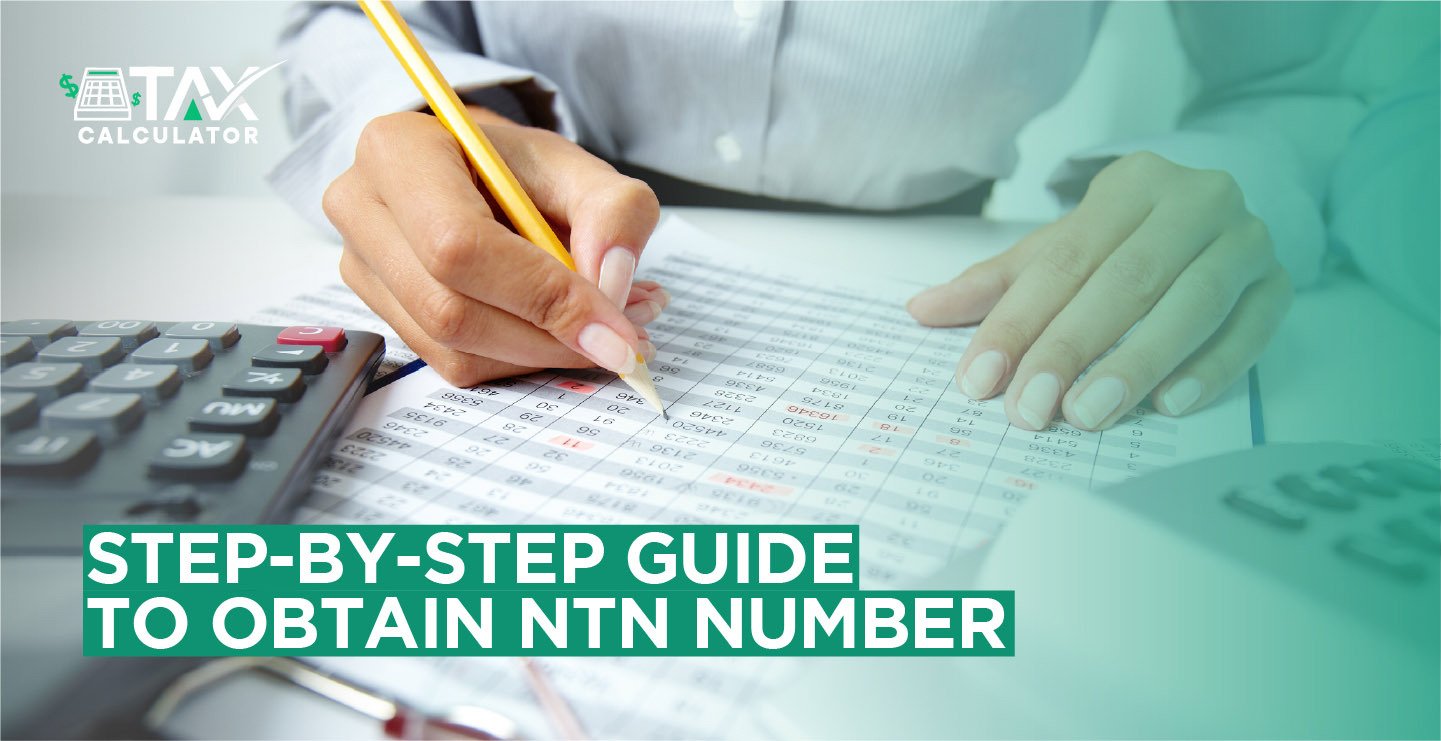There has never been a better time to start a business in Pakistan with a rapidly growing economy, a thriving youth-driven market, and increasing government support for startups and SMEs. The market is full of opportunities, costs are lower than many other countries, and a huge demand for new ideas exists.
That being said, setting up a business here comes with its own requirements such as choosing the right business structure, registering your company, getting tax compliance in order, and securing the right permits. You’ll also need an NTN from FBR, potential sales tax registration (STRN), and WeBOC if you are in imports/exports.
Yes, starting a business involves effort, but Pakistan’s low-cost business environment, high consumer demand, and emerging digital economy make it worth it. With the right guidance, you can legally set up, grow, and scale your business with confidence.
We have talked to many new business owners who have expressed their feelings about the difficult and intricate process of starting a business in Pakistan. Recognizing the common challenges, we have developed a complete guide compiling all the steps and information required to start a business in Pakistan.
Step 1. Understand the Business Dynamics in Pakistan

The market in Pakistan has huge potential, but it also comes with unique challenges that every entrepreneur must be aware of. A successful business is all about knowing how things work on the ground, so understanding the business dynamics is extremely important when starting a business in Pakistan. Pakistan is an emerging economy with a:
- Youth-driven population
- A growing middle class
- A strong demand for digital services
So, whatever business sector you are entering – retail, manufacturing, tech, or services, there are opportunities everywhere. Some booming industries include:
- E-commerce (Online retail, dropshipping, digital products)
- Tech & Software Development (Freelancing, startups, IT exports)
- Agri-Business (Organic farming, dairy, food exports)
- Manufacturing & Export (Textiles, surgical instruments, auto parts)
- Real Estate & Construction (Housing demand, commercial development)
Pakistan’s geographic location also makes it an ideal hub for trade, especially with projects like CPEC (China-Pakistan Economic Corridor) opening up new possibilities.
The Challenges You Must Prepare For:
While the market is full of opportunities, every entrepreneur needs to be realistic about the roadblocks:
- You have to deal with bureaucracy & legal hurdles. Business registration and compliance can take time, but knowing the right process makes it easier.
- Every business owner must be aware of Taxation & Regulations – FBR tax requirements, sales tax, and annual filings.
- Banks in Pakistan prefer businesses with strong financial records. For startups, government-backed SME loans and private investors are good options.
- While major cities have better facilities, businesses in smaller cities may face challenges with internet access, supply chains, and transportation.
- Inflation, currency depreciation, and changing government policies can impact pricing and profit margins.
You Must Know How Businesses Operate in Pakistan!
Unlike Western economies, Pakistan’s business culture relies heavily on:
- Networking & Relationships
- Cash-Based Transactions
- Family-Owned Enterprises
The good news is Pakistan is moving towards a digital economy through:
- E-commerce platforms like Daraz, Shopify, and local marketplaces are booming.
- Freelancing & IT exports are generating billions of dollars in revenue.
- Government initiatives like SECP’s online registration portal and tax reforms are making business processes smoother.
So, if you don’t take time to analyze the market, you could waste time and money on a business that is not viable or scalable. Before moving forward, ask yourself:
- Who are your target customers? What do they need?
- Who are your competitors? How are they operating?
- What is your business model? Will it survive Pakistan’s economic and regulatory conditions?
After all this understanding, your next step will definitely be choosing the Right Business Structure.
Step 2: Choose the Right Business Structure

One of the most important decisions you’ll make when starting a business in Pakistan is choosing the right legal structure. This decision affects your taxes, liability, compliance requirements, and even how you can raise funds.
| Business Structure | Best For | Key Benefits | Main Drawbacks | Registration Requirements |
|---|---|---|---|---|
| Sole Proprietorship | Freelancers, small businesses, solo entrepreneurs | ▪ Easy & quick setup ▪ Minimal paperwork ▪ Lower taxes | ▪ Unlimited liability ▪ Limited credibility ▪ Hard to raise investment | ▪ Get NTN from FBR ▪ Open a business bank account ▪ Sales tax registration (if applicable) |
| Partnership | Small businesses with two or more owners | ▪ Shared investment & skills ▪ Simple legal structure ▪ Lower taxation than companies | ▪ Unlimited liability (except LLP) ▪ Risk of partner disputes ▪ Hard to raise external funding | ▪ Draft Partnership Deed ▪ Register with Registrar of Firms ▪ Obtain NTN from FBR ▪ Sales tax registration (if needed) |
| Private Limited Company (Pvt Ltd) | Startups, growing businesses, those seeking investment | ▪ Limited liability ▪ Better credibility ▪ Easier to raise funding | ▪ More paperwork & compliance ▪ Higher registration & tax costs ▪ Annual audits required | ▪ Register with SECP via eServices ▪ Submit Memorandum & Articles of Association ▪ Obtain NTN from FBR ▪ Open a business bank account |
| Limited Liability Partnership (LLP) | Professional firms (lawyers, consultants, small businesses) | ▪ Limited liability ▪ Partnership flexibility ▪ Easier compliance than Pvt Ltd | ▪ Less credibility than Pvt Ltd ▪ Some tax & legal restrictions | ▪ Register with SECP as an LLP ▪ Obtain NTN from FBR |
| Public Limited Company (PLC) | Large businesses, those planning to raise public funds | ▪ Can raise funds from the public ▪ Greater business credibility ▪ Limited liability | ▪ Strict SECP regulations ▪ Expensive & complex setup ▪ Mandatory public disclosures | ▪ Register with SECP as a PLC ▪ Comply with Pakistan Stock Exchange (PSX) rules (if listed) |
| NGO / Non-Profit Organization | Charitable, social, or research-based organizations | ▪ Tax benefits ▪ Eligible for grants & funding ▪ Social impact focus | ▪ Cannot distribute profits ▪ Requires SECP & government approvals ▪ Strict reporting requirements | ▪ Register under Section 42 of the Companies Act ▪ Apply for tax exemption & compliance |
Read a Detailed Comparison of Public Limited Company and a Private Limited Company
Step 3: Business Registration Process in Pakistan

Once the business structure is finalized, the next step is to register your business with the relevant authorities to ensure it operates legally and avoids future complications.
I. SECP Registration (For Companies & LLPs)
If you are setting up a Private Limited Company (Pvt Ltd) or a Limited Liability Partnership (LLP), you must register with the Securities and Exchange Commission of Pakistan (SECP) through their online eServices portal.
Follow these key steps:
- Name reservation (check availability and secure your business name)
- File incorporation documents (Memorandum & Articles of Association for companies, Partnership Deed for LLPs etc)
- Receive the Certificate of Incorporation upon approval
👉 For a detailed guide on company registration, check out How to Register a Company in Pakistan.
II. National Tax Number (NTN) & Sales Tax Registration (STRN)
All businesses, including sole proprietorships, must register with the Federal Board of Revenue (FBR) to get an NTN for tax purposes. If your business deals in goods or services that are taxable under sales tax laws, you must obtain a Sales Tax Registration Number (STRN) from FBR.
Who Needs Sales Tax Registration?
- Retail & Wholesale businesses (if annual turnover exceeds Rs. 10 million)
- Manufacturers & Importers
- Service providers in certain industries (restaurants, salons, software houses, etc.)
- E-commerce stores (if selling taxable goods)
How to Register for STRN (STRN registration typically takes 2-3 days.)
- Log in to FBR’s IRIS Portal and apply for Sales Tax Registration.
- Provide Business Details including NTN, business type, and location.
- Submit Sales Tax Return Monthly: Once registered, businesses must file monthly sales tax returns to remain compliant.
III. Business Bank Account
To separate personal and business finances, open a business bank account. For this purpose, banks require your NTN, business registration proof, and CNIC to open an account.
IV. Industry-Specific Licenses
Certain businesses require additional approvals, such as food licenses, import/export permits, or professional certifications. Make sure to check the requirements based on your industry.
Once you have completed these steps, your business is legally ready to operate.
Step 4: Legal and Compliance Requirements

After business registration, you need to focus on the legal obligations and compliance requirements of your business. Businesses that ignore compliances at the start face many issues later, so staying legally compliant is extremely important.
Tax compliance in Pakistan varies based on your business structure.
| Annual Filing Requirement | Tax Registration | |
|---|---|---|
| Sole Proprietorship | NTN (FBR) | Income tax return (annually) |
| Partnership (AOP) | NTN + Partnership Registration | Income tax return + Partnership Deed filing |
| Private Limited Company | NTN + SECP Registration | Annual financial statements & tax return |
| Limited Liability Partnership (LLP) | NTN + SECP Registration | Annual compliance report & tax filing |
Remember, Filing tax returns is mandatory, even if you are not making a profit yet. Also, SECP-registered businesses (like Pvt Ltd & LLPs) must also file annual financial reports.
Non-compliance to regulations can lead to penalties and potential business suspension.
Intellectual Property Protection (Trademarks & Copyrights)
If you have a unique business name, logo, or product, it’s wise to secure intellectual property (IP) rights to prevent others from copying your brand.
- For Trademark Registration (logos, brand names, slogans) you can apply through Intellectual Property Organization of Pakistan (IPO-Pakistan)
- For Copyright Protection (written content, designs, software), register via IPO-Pakistan
Contracts & Employment Laws
As your business grows, you’ll eventually need to hire people or work with vendors. It’s important to have clear contracts already to avoid misunderstandings later.
- Employment Contracts – Make sure job roles, salaries, benefits, and termination terms are clearly written down. This helps both you and your employees stay on the same page.
- Employee Rights – You need to follow Pakistan’s labor laws, which include paying at least the minimum wage, registering employees for EOBI (pension fund) if you have five or more staff, and contributing to social security where required.
- Vendor & Client Agreements – Always put business deals in writing, a proper contract that ensures everyone sticks to their commitments and helps avoid disputes.
Step 5: Financial Planning and Funding Options

Money is the backbone of any business, and figuring out how much you need and where to get it is another factor when starting out. Poor financial planning is one of the main reasons businesses struggle and shut down, so getting this right from the start will set you up for long-term success.
Estimate Startup Costs from the Start
The amount of money you need to start a business in Pakistan depends on the type and scale of your business. Some businesses, like freelancing or e-commerce, require minimal investment, while others, like manufacturing or retail, need substantial capital. Your startup costs may include:
- Business registration & legal fees
- Office/shop rent & utilities
- Equipment, inventory, or raw materials
- Marketing & branding expenses
- Initial salaries (if hiring staff)
It’s a good idea to break down your expected costs and ensure you have enough funds to cover at least the first 6–12 months of operations.
Self-Funding vs. External Investment – Know Your Priority
There are two main ways to fund your business: using your own money or securing external financing.
- Self-Funding (Bootstrapping) – If you have personal savings or income from another source, investing your own money gives you full control over your business.
- External Funding – If your savings are not enough, you’ll need to explore loans, investors, or government financing options.
Bank Loans & Government-Backed Financing
Several banks in Pakistan offer business loans, but most require a solid business plan and collateral. However, government-backed programs make it easier for small businesses and startups to get financing. The options include:
- State Bank of Pakistan (SBP) SME Financing – Low-interest loans for small and medium businesses.
- Kamyab Jawan Program – A government initiative offering easy loans for young entrepreneurs.
- Islamic Banking Business Loans – Shariah-compliant financing options for those looking for interest-free funding.
Venture Capital, Angel Investors & Incubators
If you have a scalable business idea, you can attract venture capitalists (VCs) or angel investors. These investors provide funding in exchange for equity (ownership) in your business. Some well-known investors and incubators in Pakistan include:
- Ignite National Technology Fund
- Plan9 (Punjab IT Board’s incubator)
- Fatima Gobi Ventures
- Invest2Innovate (i2i)
Startups in technology, fintech, and e-commerce have better chances of securing investor funding.
Once funding is finalized, the next thing you need to do is manage your finances properly for business survival. Good financial management ensures cash flow stays positive, helping your business grow without unnecessary financial stress.
Step 6: Practical Steps for Setting Up Operations

After all legal and financial regulation, the next step is to set up the actual operations of your business by finding the right space, hiring the right people, and making sure everything runs smoothly.
The Right Location for Your Business
Your business location depends on the type of business you’re running. If you’re starting an online business, all you need is a laptop, internet, and a registered address for legal purposes. But if your business requires a physical presence, you need to think about:
- Accessibility – Is it easy for customers, suppliers, or employees to reach?
- Cost – Can you afford rent and utilities in that area?
- Market Fit – Does the location match your target audience (e.g., retail shops in commercial areas, factories in industrial zones)?
Some businesses also use co-working spaces in Pakistan as a cost-effective alternative to renting an office.
Hiring Employees & Understanding Labor Laws
If you plan to build a team, it’s important to hire the right people and follow Pakistan’s labor laws. You can also hire freelancers or remote workers if you are running a service-based or digital business.
Business Insurance & Risk Management
Many small businesses in Pakistan ignore insurance, but it’s crucial for protecting your business from financial losses. Depending on your business type, you might need:
- Property insurance – If you own a shop, office, or warehouse, this covers damage from fire, theft, or natural disasters.
- Liability insurance – Protects your business in case of lawsuits or customer complaints.
- Employee insurance – Covers workplace injuries or health benefits for employees.
While not mandatory for all businesses, having insurance reduces risks and helps you recover quickly if something goes wrong.
Branding, Marketing & Customer Acquisition
No matter how good your business is, customers won’t come automatically, so you have to market it, and it’s better to digitally market it.:
- Have a professional logo, business name, and messaging that stand out.
- A website, social media, and Google My Business listing are essential.
- Social media ads, SEO, and influencer marketing can bring in customers at a low cost.
- Attend industry events, join business groups, and connect with potential customers or partners.
A solid marketing strategy will let people know about your business and trust your brand. Without marketing, even the best business idea can fail.
How Much Money is Required to Start a Business in Pakistan?
Pakistan is a competitive and business-friendly market and boasts a diversified economy that is growing rapidly. Various factors would determine the cost to start a business in Pakistan, including the business’s size and complexity.
The rough estimated total costs for:
- Small Business: PKR 200,000 to PKR 1,000,000
- Medium Sized Business: PKR 1,000,000 to PKR 5,000,000
- Large Business: PKR 5,000,000 and above
Registration and Legal Fees
It includes Company Registration, Trade License, Tax Registration, and Intellectual Property Registration. The minimal capital requirement for company registration in Pakistan is PKR 100,000. Other than that, you will have to pay a Name reservation fee (PKR 200), Filing fee (PKR 400), Registration fee (PKR 1000 for a capital of PKR 100,000 and additional PKR 500 for every PKR 100,000, Fee for registration with the labor department (PKR 1000)
Office or Workspace Costs
In major cities like Lahore, Karachi, and Islamabad, an office or retail space can range between PKR 20,000 to PKR 200,000 per month, depending on the location, and the size of the office. After acquiring the space, you will have to furnish it according to your brand colors, and stock it with inventory and equipment required for your business.
The cost of furnishing and stocking your office depends on the type of equipment you need. It typically includes flooring, wiring, tables, chairs, and computers/laptops.
Marketing and Branding
Digital Marketing includes setting up a website, social media campaigns, and online ads. It costs between PKR 20,000 to PKR 100,000 initially. Branding encompasses logo, packaging, stationary, and other branding material. A designer usually charges PKR 10,000 to PKR 50,000 for branding design.
Employee Salaries
The typical salary for:
- Unskilled labor costs around PKR 20,000 to PKR 30,000 per month.
- Skilled labor salary is between PKR 40,000 and PKR 90,000.
- Professionals like accountants and managers take around PKR 80,000 to PKR 150,000 monthly.
Utilities and Operational Costs
Electricity and gas bills depend on your business. Industries like software development have a high electricity bill and comparatively lower gas bills. Similarly, manufacturing plants mostly run on gas, which means the gas bill will be higher. You will also need an internet connection; it typically has a fixed cost depending on the chosen package.
We advise you to have at least 3 to 6 months of working capital to cover operational expenses like salaries, rent, and utilities.
FAQs
Which business is best to start in Pakistan?
Some profitable options include e-commerce, food businesses, digital services (freelancing, IT solutions), real estate, and agriculture-based ventures. Choose a business that aligns with your skills and market trends for the best chances of success.
How to start a business with 50,000 rupees in Pakistan?
Starting a business with 50,000 rupees in Pakistan is possible with low-cost, high-demand options. You can launch an online store (dropshipping, reselling), a small food cart, tutoring services, digital marketing, or freelancing.
Which food business is most profitable in Pakistan?
The most profitable food businesses in Pakistan could be fast food (burgers, fries, shawarma), homemade food delivery, bakery items, and tea cafés (Chai spots). Low investment but high-demand options like street food stalls and cloud kitchens also generate great profits due to increasing food delivery trends.
Conclusion
No business journey is completely smooth, and challenges will come along the way. But what separates successful entrepreneurs from the rest is taking action despite uncertainties. Every thriving business today started from step one—just like you are doing right now.
Resources to Help You Get Started:
SECP – For company registration & legal compliance
FBR – For tax registration & financial regulations
SMEDA – Free business planning resources & funding guidance
Kamyab Jawan Program – Government-backed loan options for young entrepreneurs
Incubators & Accelerators – Plan9, NIC Pakistan, and others offer startup support
Need Help with Business Registration, Taxes & Compliance?
At PakTaxCalculator.pk, we make the process simple, fast, and hassle-free—so you can focus on growing your business while we handle the paperwork
Get expert assistance for:
- Business registration & SECP filings
- Tax registration (NTN, STRN) & compliance
- Financial & tax consultancy tailored to your business
Let’s make your business official with Pak Tax Calculator.



